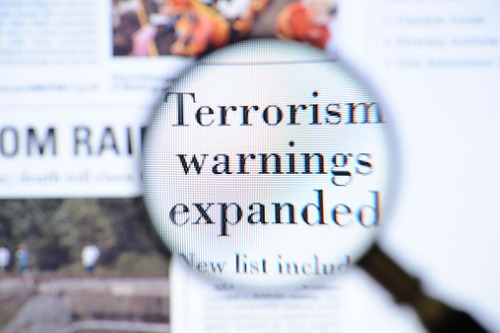

There is an old saying that “failing to prepare is preparing to fail.” However, while this might ring true for everything from school exams to that next crucial boardroom meeting, even the best planning in the world can’t prepare us for the unexpected – and when it comes to the unexpected, few things are as striking as acts of terrorism.
“It’s a bit like the boy putting his finger in the dam in Holland,” explained Beech Underwriting MD and CEO Geoff Stilwell, speaking to Insurance Business. “He spots a leak and another hole forms and he puts another finger in. It’s like a lot of things – you think you’ve got things about right and then something will happen that will say ‘you know what, we either missed it or we didn’t think that would happen.’ Certainly on 9/11 nobody thought someone would fly a plane into a building.”
While nobody can predict what methods terrorists will try next, efforts are being made to at least make the attacks we already know about more difficult to implement. Indeed, after the onset of vehicular attacks in previous years, the volume has greatly decreased this year in part due to the mitigation efforts that are being made.
“They’ve made it more difficult for incidents like that to happen – particularly in London,” explained Stilwell. “Now they have steel railings and barriers all around Parliament to stop vehicles mounting the pavement.”
It’s an ongoing trend that countries are reacting to terrorist incidents rather than anticipating them ahead of time – it can be dated back to long before even 9/11.
“Many years ago there used to be weed killer called Paraquat – in the old days you could choose weed killer and sugar to make an explosive device,” Stilwell said. “What’s happened now is you’ll see in the aisle of the supermarket weedkillers are all enzyme based so they are an irritant but not an explosive. What the government has done is brought rules in to make life a little more difficult [for the terrorists].
“Then there is the example of buying a gas barbecue. When you buy one you are registered with the government for filling a gas cylinder – so you actually have to be registered to be able to get it. It’s similar with fertilisers for farmers. Everything has to be stored specifically. You’re not allowed to carry huge stocks.
“I run a race car and with it I use a fuel called nitromethane. When I was over there a few weeks ago, I had to register with the Department of Homeland Security in the US just to use it. Many years ago, you didn’t have to be [registered].”
The list goes on, Stilwell explains, highlighting how butane cylinders can no longer be bought from local stores making them more difficult to obtain, and that you now have to be 18 and supply identification in order to buy a knife.
Yet is there any way that insurers can actually get ahead of the game and beat the terrorists to the punch, rather than governments simply introducing mitigating measures after a tragedy?
“We keep our finger on the pulse about what’s happening around the world,” said Stilwell. “As we write in other parts of the world we see they [the terrorists] have different aspirations to what they have here.
“We have to be diligent – for example, by following through on large transactions. We actually traced one client to Kathmandu. It was just something that seemed a bit unusual and this client was allegedly living here in the UK and had a UK address – but we discovered there were a series of companies travelling through the Middle East and Panama and one ended up being in Kathmandu.
“We’ve had some interesting things turn up and it’s all down to vigilance. We ask for IDs, copies of passports, things like that. Something will always pop up somewhere.”
